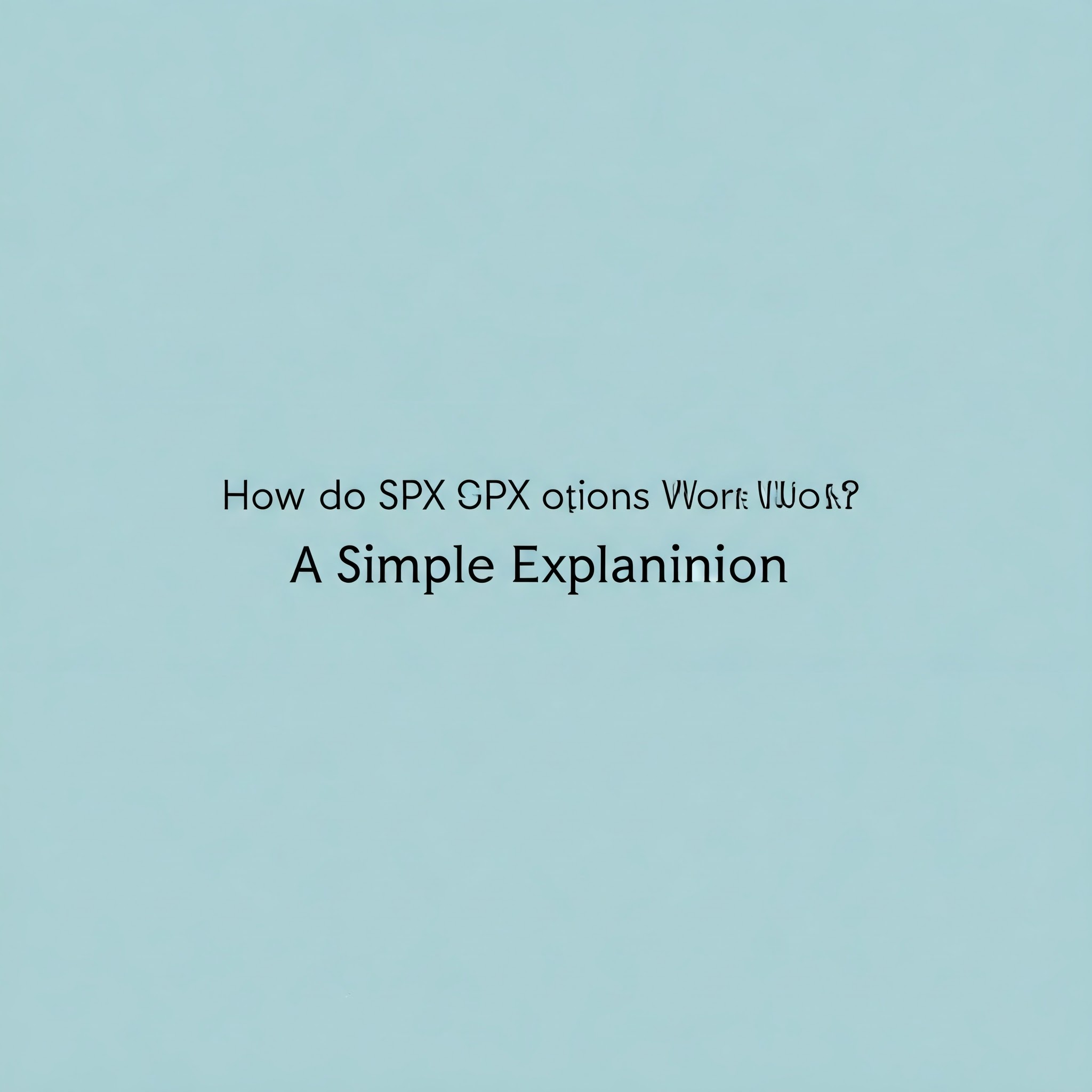Introduction
SPX options, which are based on the S&P 500 Index, are one of the most popular financial instruments for traders and investors. They offer a unique way to gain exposure to the broader market, hedge portfolios, or speculate on market movements. But what makes SPX options so attractive? In this article, we’ll explore the key advantages of trading SPX options and why they might be a valuable addition to your trading strategy.
What Are SPX Options?
SPX options are financial derivatives based on the S&P 500 Index, a benchmark index representing the performance of 500 of the largest U.S. companies. These options are cash-settled and European-style, meaning they can only be exercised at expiration.
Advantages of Trading SPX Options
1. Broad Market Exposure
SPX options provide exposure to the entire S&P 500 Index, which includes companies from various sectors such as technology, healthcare, finance, and consumer goods. This diversification reduces the risk associated with investing in individual stocks.
Why It Matters:
- Reduces company-specific risks.
- Provides a balanced view of the overall market.
2. Cash Settlement
SPX options are cash-settled, meaning no physical delivery of the underlying asset occurs. Instead, the profit or loss is settled in cash based on the difference between the index price and the strike price.
Why It Matters:
- Simplifies the trading process.
- Eliminates the need to handle physical delivery of stocks.
3. European-Style Options
SPX options are European-style, meaning they can only be exercised at expiration, not before. This reduces the risk of early assignment for option sellers.
Why It Matters:
- Provides more predictability for option sellers.
- Reduces the complexity of managing positions.
4. High Liquidity
SPX options are highly liquid, meaning they can be easily bought and sold without significantly affecting the price. This is due to the popularity of the S&P 500 Index and the high trading volume of SPX options.
Why It Matters:
- Allows for quick entry and exit of positions.
- Tighter bid-ask spreads, reducing trading costs.
5. Leverage
Options provide leverage, allowing traders to control a large position with a relatively small investment. This can amplify potential returns, although it also increases risk.
Why It Matters:
- Maximizes capital efficiency.
- Enables higher potential returns with less upfront capital.
6. Hedging Opportunities
SPX options are an effective tool for hedging against market downturns. For example, buying put options can protect a portfolio from declines in the S&P 500 Index.
Why It Matters:
- Reduces portfolio risk during volatile market conditions.
- Provides peace of mind for long-term investors.
7. Tax Benefits
SPX options are classified as Section 1256 contracts under the U.S. tax code, which means they are eligible for favorable tax treatment. Gains are taxed as 60% long-term and 40% short-term capital gains, regardless of the holding period.
Why It Matters:
- Lower tax liability compared to other types of options.
- Simplifies tax reporting.
8. Extended Trading Hours
SPX options are traded nearly 24 hours a day during weekdays, providing flexibility for traders in different time zones or those who prefer to trade outside regular market hours.
Why It Matters:
- Allows for greater flexibility in managing positions.
- Enables traders to react to global market events in real-time.
9. Variety of Trading Strategies
SPX options can be used in a wide range of trading strategies, from simple directional bets to complex spreads and combinations. This versatility makes them suitable for traders with different risk tolerances and objectives.
Popular Strategies:
- Long Call: Betting on the index to rise.
- Long Put: Betting on the index to fall.
- Iron Condor: Profiting from low volatility.
- Straddle: Profiting from high volatility.
Why It Matters:
- Adaptable to different market conditions.
- Suitable for both beginners and advanced traders.
10. No Dividend Risk
Since SPX options are based on an index rather than individual stocks, there is no risk of dividend payments affecting the option’s price.
Why It Matters:
- Simplifies pricing and valuation.
- Eliminates unexpected costs associated with dividends.
Who Should Trade SPX Options?
- Investors: Looking to hedge their portfolios against market downturns.
- Traders: Seeking to speculate on the direction of the S&P 500 Index.
- Advanced Traders: Interested in complex strategies like spreads and straddles.
- International Traders: Benefiting from extended trading hours.
Risks to Consider
While SPX options offer many advantages, they also come with risks:
- Volatility: The S&P 500 Index can be highly volatile, leading to significant price swings.
- Time Decay: Options lose value as they approach expiration.
- Potential for Losses: Traders can lose their entire investment if the market moves against their position.
Conclusion
SPX options offer numerous advantages, including broad market exposure, cash settlement, high liquidity, and favorable tax treatment. These features make them an attractive choice for traders and investors looking to diversify their portfolios, hedge against market risks, or speculate on market movements.
However, it’s essential to understand the risks involved and develop a solid trading plan before diving into SPX options. By leveraging the advantages and managing the risks, you can effectively use SPX options to achieve your financial goals.
How Do SPX Options Work A Simple Explanation
Key Terms in SPX Options You Need to Know: A Beginner’s Guide
Difference Between SPX Options and Other Options A Detailed Comparison




